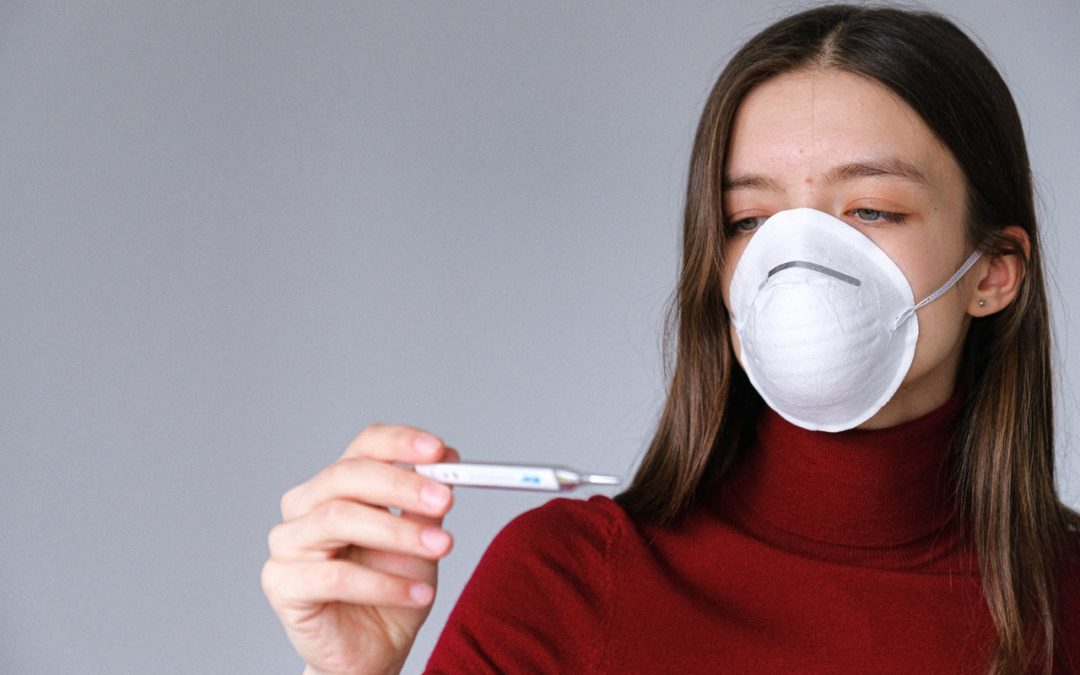One of the ongoing warnings concerning COVID-19 has been around its impact on those with underlying conditions. Chronic illnesses, such as heart disease, diabetes, and even asthma, seem to make people more vulnerable to the bad effects of the coronavirus. The best advice for those with chronic underlying conditions has been to keep their interactions with people outside the home to a minimum. But what else can individuals with chronic issues do to stay healthy?
Treating Chronic Illness with Acupuncture
In Oriental medicine, chronic illness is a sign that the body is out of balance. Our internal organs have partner organs that mirror them throughout the body, and if one body part is out of balance, the other will be affected. The life force or energy in the body, called qi (“chee”), must flow evenly throughout the body, and through each organ. If the flow of qi is disrupted, it can throw an organ out of balance.
Acupuncture helps restore the flow of qi between organs and tissues. This is achieved by releasing flow through acupressure points across the body. Because of the mirroring effect between organs, an acupuncturist will treat not just the organ that is affected by a condition, but the paired organ as well.
For instance, if you suffer from asthma, a disease of the lungs, you’ll receive acupuncture treatment for your lungs, but also for the bladder, which is the mirror organ of the lungs. The heart is paired with the small intestine, so if you suffer from heart disease, you can expect to have a treatment that centers not only on your heart, but also on your digestion.
Herbal Medicine to Help Support Chronic Conditions
While acupuncture is the main way that 120 Acupuncture Clinic helps patients to heal and manage chronic conditions, Dr. Ko may also prescribe herbal medicine to help patients in different ways.
In the case of diabetes, which is considered to be caused by a deficiency in the kidneys, Dr. Ko might prescribe herbal medicines to strengthen the body, such as Shu Di Huang (Rehmanniae Praeparata, Radix), Shan Yao (Dioscoreae, Radix), Shan Zhu Yu (Corni, Fructus), Wu Wei Zi (Schisandrae Chinensis, Fructus), and Mu Dan Pi (Moutan, Cortex).
For heart disease, Dr. Ko might prescribe Xiang Fu (Cyperi, Rhizoma), Suan Zao Ren (Zizyphi Spinosae, Semen), Yuan Zhi (Polygalae, Radix), abd Mai Dong (Ophiopogonis, Tuber). These herbal medicines help to reduce agitation and improve blood flow and circulation of the heart.
For asthma, Dr. Ko would prescribe herbal medicines that help to soothe coughing and reduce phlegm, such as Tian Hua Fen (Trichosanthis, Radix), xìng rén (Semen Armeniacae), or Jie Geng (Platycodi, Radix).
A Holistic Approach to Managing Chronic Illness
The main goal of any treatment in Oriental medicine is to treat the whole person. This holistic approach will include traditional treatments like acupuncture and herbal medicine, but may also include changes to diet and exercise. Dr. Ko and his team work to make sure that each treatment plan is specific to an individual patient’s needs and conditions. And, of course, these treatments can work well with Western treatments ordered by your general practice physician.
While staying home and avoiding contact with people outside your home is the best way to avoid contracting COVID-19, managing your chronic disease through acupuncture can help you stay healthy. If you’re looking for ways to help manage your chronic illness, make an appointment with 120 Acupuncture Clinic today.







